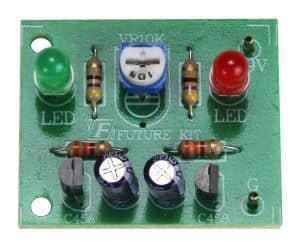I have read the poems in my collection numerous times while editing, revising, and reviewing each iteration of the manuscript and the digital and paperback proofs. I am also in the process of compiling about 40 poems for a possible sequel to A Consecration of the Wind. During all phases of the intense examination of poems I had not revisited in decades, I have encountered many pieces that are surreal and whose meaning is submerged in dreams that almost defy analysis.
The first time my dreams translated into poems was after my mother passed away suddenly in 1976. In the early 80s, though, not all the dreams I had were about my mother. There were many seemingly inexplicable dreams that I recorded on paper. One of these dream-inspired poems is “Divergent Paths,” which appears in my debut collection. The poem opens with the following lines:
Her horizontal landscape,
Series of electrical switches
And bulbs blinking,
Flickers until all is
Dark inside the cave.
 The vision of my body as a “Series of electrical switches/And bulbs blinking,” occurred in a dream that took place on May 21, 1982. Although the image is abstract and expressionistic, I understood then and now that the landscape was a metaphor for the anxiety I was experiencing at the time.
The vision of my body as a “Series of electrical switches/And bulbs blinking,” occurred in a dream that took place on May 21, 1982. Although the image is abstract and expressionistic, I understood then and now that the landscape was a metaphor for the anxiety I was experiencing at the time.
Throughout my poetry, I refer to caves, caverns, and dark places that are sacred and savage at once. Coleridge’s “Kubla Khan” and Joseph Conrad’s Heart of Darkness are partly responsible for my obsession with the juxtaposition of light and dark, good and evil, and the divided selves that coexist in all of us. Conrad’s novel title also influenced the section title Art of Darkness.
“Divergent Paths” ends with the following lines:
The cacophony of soul catchers
Lingering outside these walls
Reaches silent ears that are
Caught in an embrace
Of former fears
In a frenzied journey
To that improved translation
Of endings.
My only major edit of these last lines occurs in the phrase, “cacophony of soul catchers,” an allusion to a controversial interpretation of Sylvia Plath’s “The Rabbit Catcher,” which most critics agree is an indictment of her marriage to her unfaithful husband, Ted Hughes. Based on the image from my dream, however, I had written, “The cacophony of birds,” but when I thought about the few people who were somewhat responsible for the anxiety that formed the underpinning of this poem, the phrase “soul catchers” seemed much more appropriate. Sir James George Frazer describes these demons in The Golden Bough:
“… there are also wretches who from pure spite … set and bait traps with the deliberate purpose of catching the soul of a particular man; and in the bottom of the pot, hidden by the bait, are knives and sharp hooks which tear and rend the poor soul, either killing it outright or mauling it so as to impair the health of its owner when it succeeds in escaping and returning to him.” https://www.bartleby.com/196/pages/page188.html
Although the concept of “soul catchers” adds a grotesque note to this poem, the piece nevertheless concludes on a positive note – a quest for an “improved translation/Of endings.” It is as though I wanted to rewrite the ending to my story and translate or transform a sense of incompleteness into the sublime. It would be one more month before I realized I was deeply in love with Bud and was ready to fully commit to our relationship. In retrospect, Bud was and still is my “improved translation/Of endings.”

Recent Comments